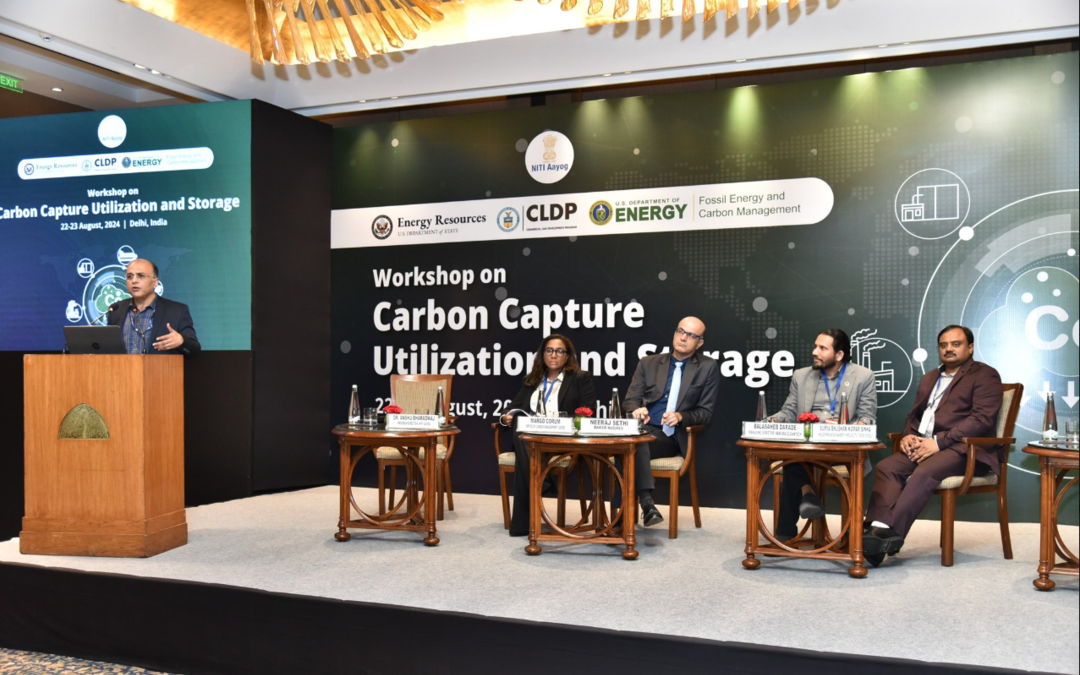NITI Aayog Sets Up Committees to Tackle CCUS Challenges
These initiatives were the outcome of a two-day workshop on “Legal & Regulatory Frameworks and Technical Considerations for Carbon Capture Utilization and Storage (CCUS)” held from Aug. 22-23 at The Oberoi, New Delhi.
NITI Aayog, India’s policy think tank, has constituted four technical inter-ministerial committees on standards, storage, transportation and utilization of carbon dioxide.
According to a Planning Ministry press release issued on Friday, the committees are tasked with preparing a robust policy framework to address the challenges related to CCUS implementation in India.
The framework will also factor in technology readiness, high upfront capital costs, a lack of infrastructure for CO2 transportation and storage, regulatory gaps, and public acceptance issues.
These initiatives resulted from a two-day workshop on “Legal & Regulatory Frameworks and Technical Considerations for Carbon Capture Utilization and Storage” held from Aug. 22-23 at The Oberoi, New Delhi.
The workshop was jointly organized by NITI Aayog, the Government of India, the US Department of State’s Bureau of Energy Resources, the US Department of Energy’s Office of Carbon Management, and the US Department of Commerce’s Commercial Law Development Program.
Speaking at the event, US Embassy Ambassador Eric Garcetti, in his opening remarks, reflected on the longstanding US-India association and the potential multiplicative effect of this partnership.
He rephrased the CCUS abbreviation “Collaboration and Coordination with the US,” highlighting the spirit of this partnership.
NITI Aayog Vice Chairperson Suman Bery discussed the institution’s ongoing efforts to develop pathways for India’s Net Zero 2070 that balance the imperatives of employment, growth and environmental sustainability.
NITI Aayog Member Dr. VK Saraswat highlighted the urgency of developing CCUS technology to achieve India’s net zero target.
He mentioned the lessons learned from various pilot projects undertaken by industry partners, including NTPC, OIL, ONGC, etc.
He also shared the country’s deep commitment to mitigating climate change, highlighting that India is on track to achieve its nationally determined contributions.
As part of its NDCs, India aims to reduce the emissions intensity of its GDP by 25 percent by 2030 compared to 2005.
The country plans to generate about 50 percent of its energy supply through renewable sources by 2030.
Pankaj Agarwal, Secretary, Ministry of Power, stressed the need to address the energy trilemma.
He highlighted the role of domestic sources in fueling India’s growing demand and deploying efficient technologies like ultra-supercritical and advanced ultra-supercritical that should be coupled with CCUS to achieve climate commitments.
These technologies refer to advanced coal-fired power plants that operate at higher steam temperatures and pressures than conventional plants. They are designed to improve power generation efficiency and reduce CO2 emissions.
Read More:
India, US Advance Energy Ties, Explore Grid Modernization and Manufacturing
Nirmal Menon
Related posts

Subscribe
Error: Contact form not found.


